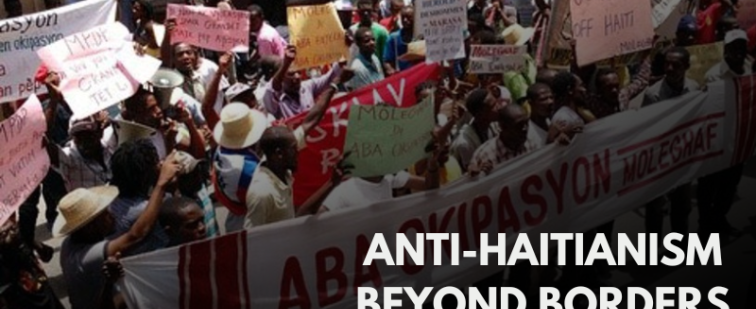Home
As we approach the anniversary of September 11, the thirty-fifth year since Allende died and this seventh year since that other September 11th, which has brought even more suffering and even less justice to the world, it is more important than ever to support NACLA's work. I was reminded of this when I recently visited the humble home of an elderly carpenter in a poor neighborhood of Santiago, Chile.
Venezuela and Russia recently announced they will be conducting joint-naval exercises off Venezuela's Caribbean coast in November. The announcement comes amid bitter diplomatic dispute between Russia and the United States over the war in South Ossetia. The upcoming Venezuela-Russia naval exercises along with the Pentagon's recent re-deployment of its Latin America fleet have stoked fears that Latin America will once again be the stage for renewed Cold War tensions.
Marchers have recently taken to the streets in Mexico on three different occasions. The marches generally represent three different groups vying for political influence. At the center of the storm is President Calderón's proposed step-by-step privatization of the nation's state-owned oil company, Pemex. The government has succeeded in driving a wedge between independent-minded unions and those being reeled into the pocket of the government in support of the privatization.
A commitment to mutual respect, self-determination, and cooperation would take Democratic presidential candidate Barack Obama much further in forging a "New Partnership for the Americas." As president, Obama might not praise or support governments and people's movements with which Washington has major differences, but if elected he will need to treat them as sovereign nations that have the right to set their own course.
The Andean Information Network (AIN) analyzes Simon Romero's recent New York Times article on the complex drug war relationship between Washington and the administration of Bolivian President Evo Morales. According to AIN's analysis, Romero's report contains multiple inaccuracies and misleading information, giving readers a skewed understanding of coca-related issues in Bolivia.
Since the passage of the North American Free Trade Agreement (NAFTA) in 1993, the U.S. Congress has debated and passed several new bilateral trade agreements with Peru, Jordan and Chile, as well as the Central American Free Trade Agreement. Congressional debates over immigration policy have proceeded as though those trade agreements bore no relationship to the waves of displaced people migrating to the United States, looking for work.
Casimira Rodríguez spent decades organizing her fellow domestic workers into a union, which she founded in 1985. When Bolivian Evo Morales was elected president of Bolivia, he tapped Rodríguez to become the nation's Justice Minister, a post she held for year. She spoke with Nancy Romer about her experience in government, the opposition to the government, the president's relationship with social movements, and even offered advice to U.S. workers.
What many now consider an “Argentine model” of soy production has emerged, combining financialization and large-scale monoculture, and it is spreading to other countries in the region.
The Security and Prosperity Partnership (SPP), launched in 2005 by the NAFTA countries, aims to securitize the “shared economic space” of Canada, Mexico, and the United States. This has profound implications for Mexico, whose shaky democracy could regress to presidential authoritarianism, with explicit U.S. support.
 |
Statistically, president Evo Morales won a resounding victory in the recent recall referendum on his presidency, but so did his staunchest opponents at the head of several departmental governments. Neither side in Bolivia's long-running standoff has gained an upper-hand, and both sides have promised to move forward unilaterally with their conflicting political agendas, meaning further polarization and outbreaks of violence will likely continue.












